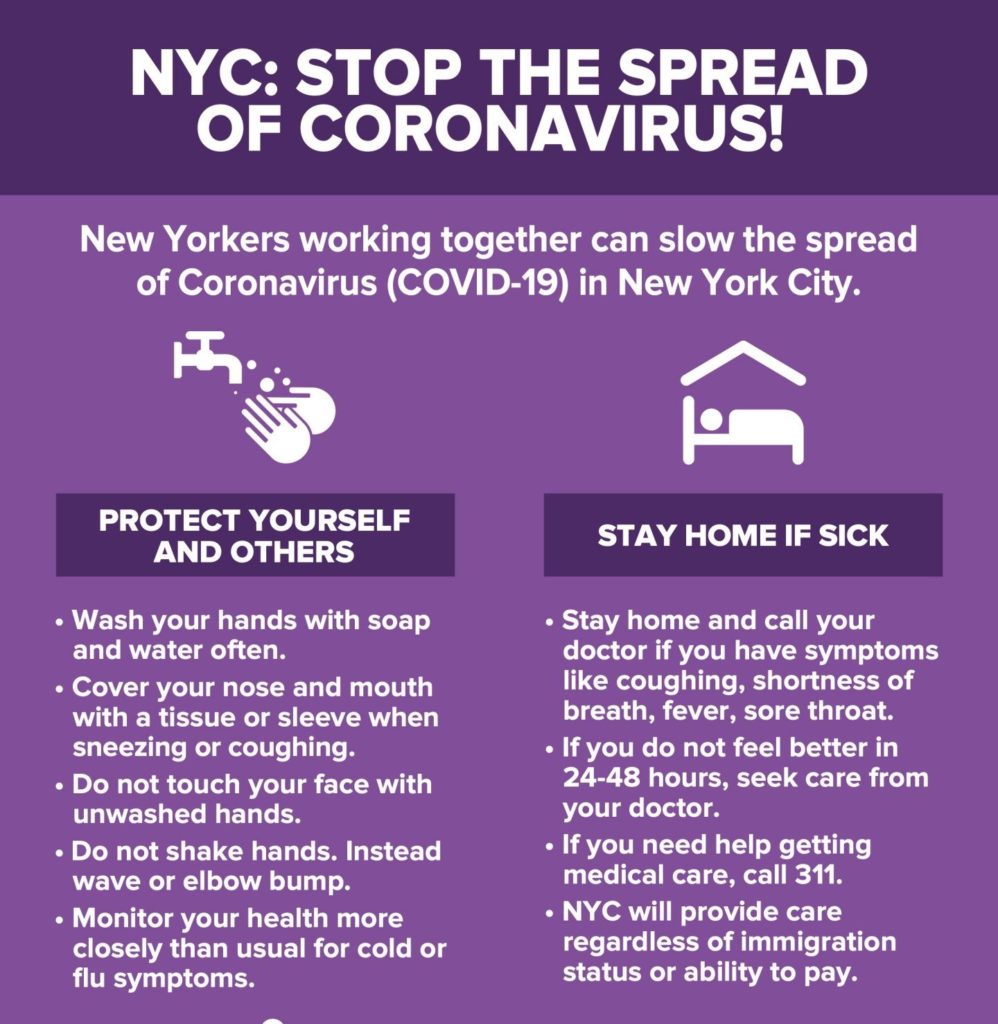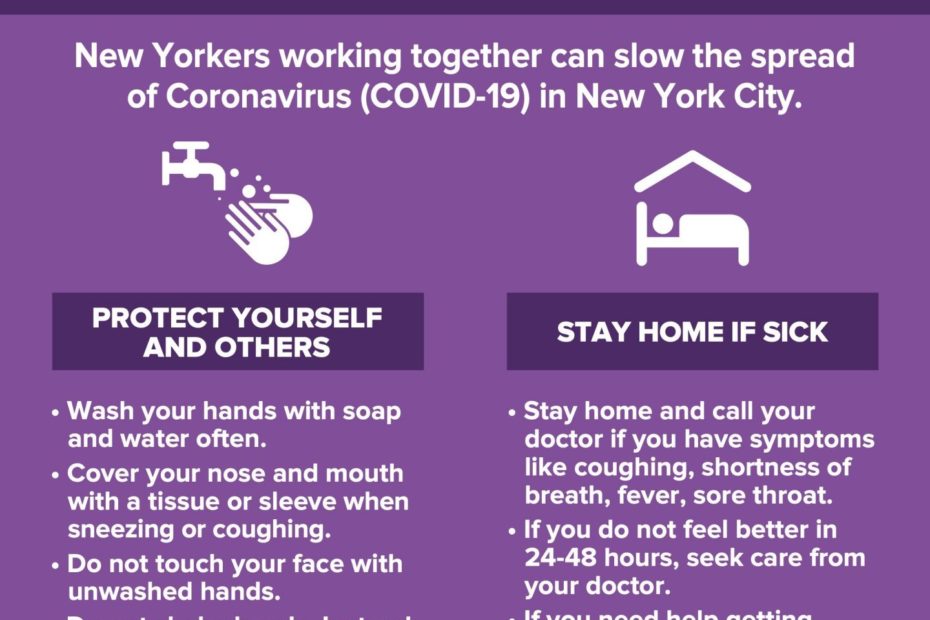

Coronavirus
Coronaviruses are a group of viruses that can cause either mild illness, such as a cold, or can make people sick with pneumonia.
If you are a medical provider, see our 2019 Novel Coronavirus (COVID-19) — Information for Providers page.
If you are being harassed due to your race, nation of origin or other identities, call 311 to report discrimination or harassment to the NYC Commission on Human Rights.
2019 Novel Coronavirus
Recently, a novel (new) coronavirus was detected. A “novel coronavirus” is a strain that has not been previously seen in humans. The disease, called COVID-19, can be spread from person to person.
People have been diagnosed with this novel coronavirus in New York City (see up-to-date case count). New York City is seeing “community transmission,” meaning the source of the infection is unknown.
There are no specific vaccines or treatments available for this novel coronavirus, or any other coronavirus. However, medication and vaccine research is underway.
- Novel Coronavirus Outbreak Factsheet (PDF, March 13)
- Stop the Spread of Coronavirus Flyer (PDF)
Other Languages: 繁體中文 | 简体中文 | Español | Русский | Kreyòl ayisyen | 한국어 | Italiano| Français | 日本語 | Tagalog | Tiếng Việt
For the latest updates on the developing situation, you can:
- Check back on this webpage regularly.
- Text “COVID” to 692-692.
- Download the Notify NYC mobile app.
If you are planning any travel outside the U.S., visit CDC’s Travelers’ Health webpage for the latest travel notices.
Symptoms
Symptoms of COVID-19 can include fever, cough or shortness of breath. An infection can result in death, but that is a rare outcome. Most people with COVID-19 will have mild symptoms. People who are at most risk for severe illness are those who have health conditions including:
- Chronic lung disease
- Heart disease
- Diabetes
- Cancer
- A weakened immune system
Prevention
As of March 2020, the Health Department recommends the following precautions to slow the spread of COVID-19:
- Stay home if you are sick. Avoid close contact with people who are sick.
- Cover your nose and mouth with a tissue or sleeve when sneezing or coughing — do not use your hands.
- Wash your hands often with soap and water for at least 20 seconds, or use an alcohol-based hand sanitizer.
- Do not touch your face with unwashed hands.
- Do not shake hands. Instead, wave or elbow bump.
- If you have family or friends who are elderly, have compromised immune systems or chronic respiratory or coronary issues, do not visit them if you feel sick. Stay home and keep your loved ones safe.
- Consider telecommuting, biking or walking to work if possible.
- Consider staggering working hours. For example, instead of 9 a.m. to 5 p.m., change some work hours to 10 a.m. to 6 p.m. or 8 a.m. to 4 p.m.
- Clean and disinfect frequently touched objects and surfaces using a regular household cleaning spray or disinfecting wipes.
- Get your flu shot. Although the flu shot will not protect you from COVID-19, it will help prevent the flu which has similar symptoms to this coronavirus.
Health Care and Testing
If you are experiencing fever, cough or shortness of breath and traveled to an area where COVID-19 is spreading, or you have had close contact with someone who has been diagnosed with COVID-19, call your health care provider. Your provider will work with the Health Department to determine if you need testing.If you need help finding a health care provider, call 311.
Public Gatherings
New Restrictions and Guidance for Large Events
Existing and future standalone events with attendance exceeding 500 people, including parades, sports events, performances, races and rallies, are canceled until further notice. Programming will also be canceled at indoor venues with consistent seating capacity over 500.
New Restrictions and Guidance for Establishments
Establishments with a capacity of 500 people or fewer, including concert venues, theaters, museums, department stores and religious institutions, are required to maintain an occupancy level at or below 50% of their legal capacity to ensure maximum social distancing.
Returning Travelers
If you recently returned to New York from China, Iran, South Korea, Italy or Japan and you do not have symptoms, the Health Department requires that you home self-monitor. You must stay home from work or school for 14 days since the day you left one of these countries. See below for guidance on what you must do.
